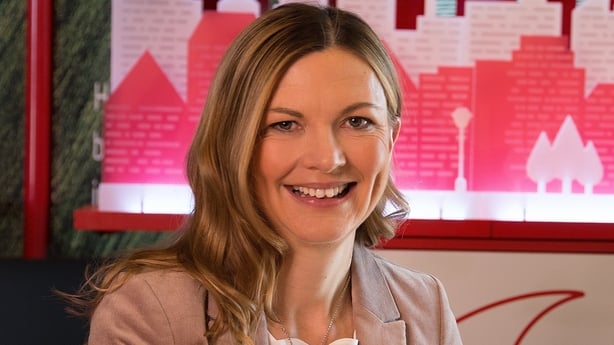Vodafone has today cut its full-year cash flow forecast and lowered its earnings guidance, reflecting higher energy costs and a deteriorating performance in Germany, Italy and Spain.
Chief executive Nick Read said the European mobile operator was taking steps to navigate the "challenging macroeconomic environment" which forced it to cut its cash flow forecast by €200m to around €5.1 billion.
The British group also said its adjusted core earnings would be between €15-15.2 billion, down from an earlier target of between €15-15.5 billion.
The market was already pessimistic about Vodafone's prospects before the half-year results, with the cash flow consensus standing at €5.14 billion and adjusted core earnings at €15.11 billion.
"We are taking a number of steps to mitigate the economic backdrop of high energy costs and rising inflation," Read said, adding that these included price increases across Europe.
Vodafone reported a 2.6% decline in adjusted earnings in its first six months, which it blamed on commercial underperformance in Germany, its biggest market, and a one-off legal settlement in Italy in the prior year.
The decline in service revenue in Germany accelerated in the second quarter to -1.1% from -0.5% in the first, it said, mainly due to broadband customer losses.
Its performance in Italy and Spain also worsened quarter-on-quarter, driven by intense competition in the value segment of both countries' mobile markets.
Britain, however, was a bright spot, with service revenue strengthening after consumer price rises and a return to growth in the business segment, it said.
Read is taking steps to simplify Vodafone and accelerate growth. He has also sought to drive consolidation in Europe.
He struck a deal with Altice to build a €7 billion fibre network in Germany last month, and last week he announced the sale of up to half of Vodafone's majority stake in its masts company Vantage Towers to infrastructure investors.
Today he announced a new cost savings target of €1 billion, focused on further simplifying the group.
Mr Read also said today that talks with CK Hutchison's Three about merging their businesses in Britain to create a market leading mobile network continued to make "good progress".
He told reporters that the combination would be healthy for the industry.
Vodafone Ireland's quarterly services revenue up 5.3%
Vodafone Ireland said its service revenue for its second quarter reached over €213m, an increase of 5.3% on an annual basis.
The telecoms company said the increase came on the back of continued growth in mobile - both contract and prepaid - and fixed broadband.
Vodafone said its total mobile customer base in Ireland increased by 5% year-on-year, with over 100,000 additional contract and prepaid customers joining the network.
Its total fixed broadband customer base also increased by 4.7% year-on-year.
Vodafone Ireland reported a 36% increase in data usage year on year to over 72,000 terabytes during the latest quarter under review.
During the quarter, Vodafone Ireland named Amanda Nelson as its new chief executive, replacing Anne O'Leary who had held the position for nine years.

Ms Nelson has been with the wider Vodafone business for almost 25 years in various senior roles, more recently as CEO and Chair of Vodafone Hungary.
In a statement, Ms Nelson said the company's results reflect the continued growth and resilience of its mobile and fixed networks and the enhanced connectivity being generated across Ireland.
"It is encouraging to see our customer base increasing across all areas, which is testament to the quality of our products, technology and service teams," the CEO said.
"The rise in traffic and reliance on our services and technology has been substantial over the last two years in terms of keeping local communities and large cities connected, while meeting the specific needs of households, businesses, industry and state partnerships," she added.
"We're looking forward to the coming months and years with plans to deliver more innovative solutions, further growth and sustainable development as we accelerate the transition to Net Zero," she added.

